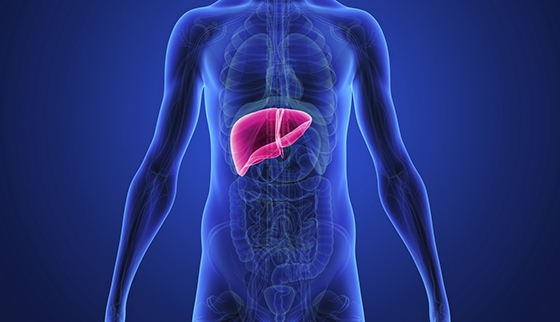What Is The Impact Of Hypertension On Liver Health?

Hypertension, or high blood pressure, can significantly impact liver health. Chronic high blood pressure can contribute to the development of nonalcoholic fatty liver disease (NAFLD), a condition where excess fat accumulates in liver cells. Over time, this can progress to more severe conditions, such as nonalcoholic steatohepatitis (NASH), fibrosis, or cirrhosis, where liver scarring impairs function.
Hypertension can also increase the risk of portal hypertension, a specific condition where high blood pressure occurs in the portal vein, leading to complications like varices and liver failure. Effective management of hypertension is crucial for maintaining liver health and preventing these serious complications.
Understanding Hypertension and its Causes
The etiology of hypertension involves a complex interplay of genetic, environmental, and lifestyle factors.
Hypertension, commonly known as high blood pressure, is a chronic medical condition characterized by elevated blood pressure levels. It is a major public health concern worldwide due to its association with increased risk of cardiovascular diseases.
Lifestyle modifications play a crucial role in the prevention and management of hypertension. Adopting a healthy lifestyle, including regular physical activity, maintaining a healthy weight, reducing sodium intake, and limiting alcohol consumption, can significantly reduce the risk of developing hypertension.
Engaging in regular exercise and following a balanced diet rich in fruits, vegetables, and whole grains can also help in managing blood pressure levels. Additionally, quitting smoking and managing stress are important lifestyle modifications that can contribute to maintaining normal blood pressure levels.
By implementing these lifestyle changes, individuals can reduce the likelihood of developing hypertension and its associated complications.
The Liver’s Role in Blood Pressure Regulation
One significant factor in maintaining blood pressure is the liver’s role in regulating blood flow. The liver plays a crucial role in blood pressure regulation through various mechanisms.
Liver produces and releases angiotensinogen, a precursor protein that is converted to angiotensin II by the action of renin. Angiotensin II is a potent vasoconstrictor that narrows blood vessels, leading to increased blood pressure.
The liver is responsible for metabolizing and removing hormones and drugs from the bloodstream, thereby affecting blood pressure levels.
The liver stores and releases glucose, which can impact blood pressure by affecting insulin secretion and sensitivity.
Furthermore, the liver is involved in the production of nitric oxide, a vasodilator that relaxes blood vessels and helps maintain normal blood pressure.
In summary, the liver’s proper function is crucial for maintaining blood pressure regulation.
| Liver Function | Blood Pressure Regulation |
|---|---|
| Produces angiotensinogen | Converts angiotensinogen to angiotensin II, a vasoconstrictor, increasing blood pressure |
| Metabolizes hormones and drugs | Affects blood pressure levels |
| Stores and releases glucose | Influences insulin secretion and sensitivity, impacting blood pressure |
| Produces nitric oxide | Acts as a vasodilator, helping maintain normal blood pressure |
Hypertension’s Effect on Liver Function
Hypertension disrupts the normal functioning of the liver, leading to potential complications in various physiological processes.
One of the major impacts of hypertension on liver health is the development of liver damage. Studies have shown that individuals with hypertension are at a higher risk of developing liver diseases such as non-alcoholic fatty liver disease (NAFLD) and liver fibrosis.
Hypertension can promote inflammation and oxidative stress in the liver, which further contributes to the progression of liver damage.
Additionally, hypertension can also affect liver enzymes, specifically increasing the levels of alanine aminotransferase (ALT) and aspartate aminotransferase (AST). Elevated levels of these enzymes are indicative of liver damage and can be used as markers to assess the severity of liver impairment.
Therefore, it is crucial to manage hypertension effectively to prevent its detrimental effects on liver function.
Can liver problems cause high blood pressure
Yes, liver problems can cause high blood pressure, particularly a condition known as portal hypertension. Portal hypertension occurs when there is increased blood pressure in the portal vein, which carries blood from the digestive organs to the liver. Liver conditions such as cirrhosis, characterized by scarring of liver tissue, can obstruct blood flow through the liver, leading to increased pressure in the portal vein.
This increased pressure can, in turn, lead to systemic complications that may elevate overall blood pressure. Liver damage can impair the regulation of certain hormones and enzymes, such as angiotensin, which play a role in blood pressure control.
Can high blood pressure cause liver damage
Yes, high blood pressure can cause liver damage, especially through a condition called nonalcoholic fatty liver disease (NAFLD). High blood pressure, particularly when combined with other metabolic conditions like obesity and type 2 diabetes, increases the risk of fat accumulation in the liver. This excess fat can lead to inflammation and damage to liver cells, potentially progressing to nonalcoholic steatohepatitis (NASH), liver fibrosis, or cirrhosis, where scar tissue replaces healthy liver tissue.
High blood pressure can cause portal hypertension when blood flow through the liver is restricted, increasing pressure in the portal vein. This can lead to complications like varices and ascites, which further harm liver function.
Hypertension and Non-Alcoholic Fatty Liver Disease
Elevated blood pressure has been found to significantly contribute to the development and progression of non-alcoholic fatty liver disease (NAFLD), a condition characterized by the accumulation of fat in the liver. The relationship between hypertension and NAFLD is complex, with hypertension playing a role in the development of liver inflammation and fibrosis.
- Hypertension can induce oxidative stress in the liver, leading to inflammation and damage to liver cells.
- Chronic inflammation caused by hypertension can promote the accumulation of fat in the liver, exacerbating NAFLD.
- Hypertension can impair the liver’s ability to metabolize and eliminate fatty acids, further contributing to fat accumulation.
- Hypertension is associated with insulin resistance, which can promote the development and progression of NAFLD.
- Hypertension and liver fibrosis are closely linked, as hypertension can promote the activation of hepatic stellate cells, which are responsible for producing excess collagen and leading to liver fibrosis.
Understanding the impact of hypertension on liver health is crucial for the management and prevention of NAFLD. Further research is needed to elucidate the underlying mechanisms and develop targeted therapeutic strategies.
Hypertension and Liver Cirrhosis
The association between high blood pressure and liver cirrhosis has been a subject of extensive research, uncovering the intricate relationship between these two conditions and providing valuable insights into their pathogenesis.
Hypertension, or high blood pressure, has been shown to contribute to the development and progression of liver cirrhosis. It exerts detrimental effects on the liver by promoting fibrosis, inflammation, and oxidative stress, which are key processes involved in the development of cirrhosis.
Furthermore, hypertension has also been implicated as a risk factor for liver cancer, as it promotes the growth and spread of cancerous cells within the liver.
Additionally, hypertension poses challenges in the context of liver transplantation, as it may complicate the surgery and increase the risk of post-transplant complications.
Therefore, understanding the impact of hypertension on liver health is crucial in improving the management and outcomes of patients with liver cirrhosis and liver cancer, as well as those undergoing liver transplantation.
Managing Hypertension to Preserve Liver Health
One important aspect of managing high blood pressure in individuals with liver cirrhosis is implementing lifestyle modifications and pharmacological interventions to control blood pressure levels.
Lifestyle changes such as maintaining a healthy weight, engaging in regular exercise, reducing sodium intake, and limiting alcohol consumption can help manage hypertension in these patients.
Additionally, medication options for hypertensive patients with liver cirrhosis include angiotensin-converting enzyme (ACE) inhibitors, angiotensin receptor blockers (ARBs), beta-blockers, and diuretics. ACE inhibitors and ARBs are preferred choices due to their renal protective effects.
However, caution should be exercised when prescribing medication to patients with liver cirrhosis, as impaired liver function can affect drug metabolism and elimination.
Regular monitoring of liver function and blood pressure levels is crucial to ensure effective management of hypertension and preserve liver health in individuals with liver cirrhosis.
Causes of elevated liver enzymes in hypertension
Elevated liver enzymes in individuals with hypertension can result from several underlying causes, often indicating stress or damage to liver cells. The presence of high blood pressure can contribute to conditions like nonalcoholic fatty liver disease (NAFLD), a common cause of elevated liver enzymes such as alanine aminotransferase (ALT) and aspartate aminotransferase (AST). NAFLD occurs when excess fat builds up in the liver, often associated with metabolic syndrome—a cluster of conditions including hypertension, insulin resistance, and obesity.
Chronic hypertension can also lead to hepatic congestion, where increased pressure within the blood vessels affects the liver’s ability to filter blood properly, causing mild elevations in liver enzymes. In more advanced cases, this can develop into portal hypertension, where elevated pressure in the liver’s portal vein leads to additional stress on liver tissues.
Medications used to manage hypertension, such as certain beta-blockers or ACE inhibitors, may also cause elevated liver enzymes as a side effect. Drug-induced liver injury can occur when the liver metabolizes these medications, potentially leading to inflammation or toxicity.
Conditions like nonalcoholic steatohepatitis (NASH)—a more severe form of fatty liver disease that involves inflammation—can develop in hypertensive patients, further increasing enzyme levels. Proper management of blood pressure and a healthy lifestyle are crucial for reducing these risks and maintaining both cardiovascular and liver health.
Regular Liver Health Monitoring for Hypertensive Individuals
Regular monitoring of liver function and blood pressure levels is essential in order to ensure effective management of hypertension and maintain overall well-being in individuals with liver cirrhosis. Hypertension, a common comorbidity in liver cirrhosis, can have detrimental effects on liver health if left unmanaged. Regular check-ups, including liver function tests and blood pressure measurements, are crucial for early detection and intervention.
These routine screenings help identify any liver abnormalities and track the progression of hypertension, allowing healthcare professionals to adjust treatment plans accordingly. Moreover, regular monitoring enables the prevention of hypertension-related complications such as portal hypertension, varices, and hepatorenal syndrome.
By closely monitoring liver health and blood pressure levels, healthcare providers can intervene promptly, optimize treatment strategies, and improve outcomes for individuals with hypertension and liver cirrhosis. Therefore, regular liver health monitoring plays a vital role in managing hypertension and preserving the overall well-being of these individuals.
Conclusion and Future Research Directions
Future research should focus on exploring novel strategies to enhance the management and overall well-being of individuals with hypertension and liver cirrhosis, with particular attention to the development of targeted interventions and personalized treatment plans.
Hypertension prevalence is significantly associated with liver health, as it contributes to the development and progression of liver diseases such as non-alcoholic fatty liver disease (NAFLD) and liver fibrosis. Future interventions should aim to identify effective ways to prevent and treat hypertension in individuals with liver cirrhosis, as well as to address the underlying mechanisms linking hypertension and liver damage.
Additionally, research should investigate the impact of hypertension on liver transplantation outcomes and explore potential therapeutic targets for the management of hypertension-induced liver injury.
By focusing on these areas, future studies can provide valuable insights into improving the care and outcomes for individuals with hypertension and liver cirrhosis.
Frequently Asked Questions
Can hypertension be a direct cause of liver disease?
Hypertension can lead to liver disease, including liver cirrhosis and nonalcoholic fatty liver disease. Studies have shown that hypertension is associated with an increased risk of developing these conditions, highlighting the impact of hypertension on liver health.
How does hypertension affect liver function?
Hypertension, or high blood pressure, can negatively impact liver function. It can cause an increase in liver enzymes, which indicates liver damage. Additionally, hypertension is closely associated with the development of fatty liver disease.
Is there a specific type of liver disease that is commonly associated with hypertension?
Hypertension is commonly associated with hepatic fibrosis and portal hypertension. These conditions can lead to liver disease, including cirrhosis. The increased pressure in the liver caused by hypertension can result in liver damage and impaired function.
Can managing hypertension help prevent or reduce the risk of liver disease?
Managing hypertension can help prevent liver disease and reduce the risk of liver damage. By controlling blood pressure levels, individuals can minimize the strain on the liver and decrease the likelihood of developing liver-related complications.
What are the recommended methods for monitoring liver health in individuals with hypertension?
Recommended methods for monitoring liver health in individuals with hypertension include liver function tests, imaging studies such as ultrasound or MRI, and liver biopsy if necessary. These methods provide valuable information about liver health and help detect any potential liver damage or disease.
Key Takeaways
- Regular monitoring of liver health and blood pressure levels is essential for adjusting treatment plans and improving outcomes for individuals with hypertension and liver cirrhosis.
- Monitoring helps prevent complications such as portal hypertension, varices, and hepatorenal syndrome related to hypertension.
- Hypertension contributes to the development and progression of liver diseases like non-alcoholic fatty liver disease (NAFLD) and liver fibrosis, highlighting the significant association between hypertension and liver health.
- Future research should focus on exploring novel strategies, interventions, and personalized treatment plans to enhance the management and well-being of individuals with hypertension and liver cirrhosis.








